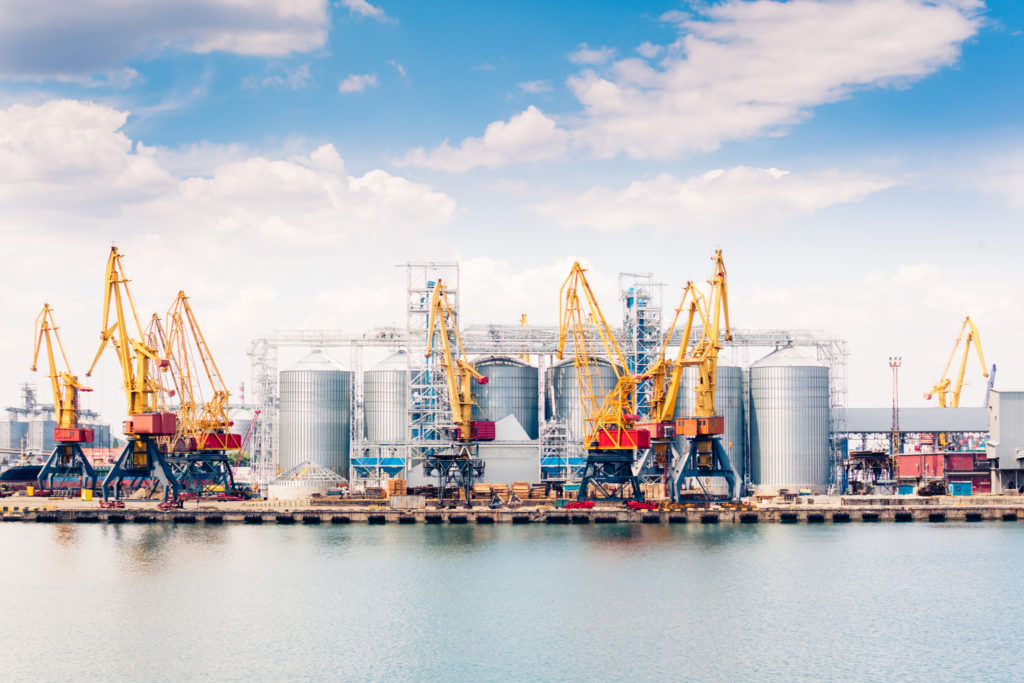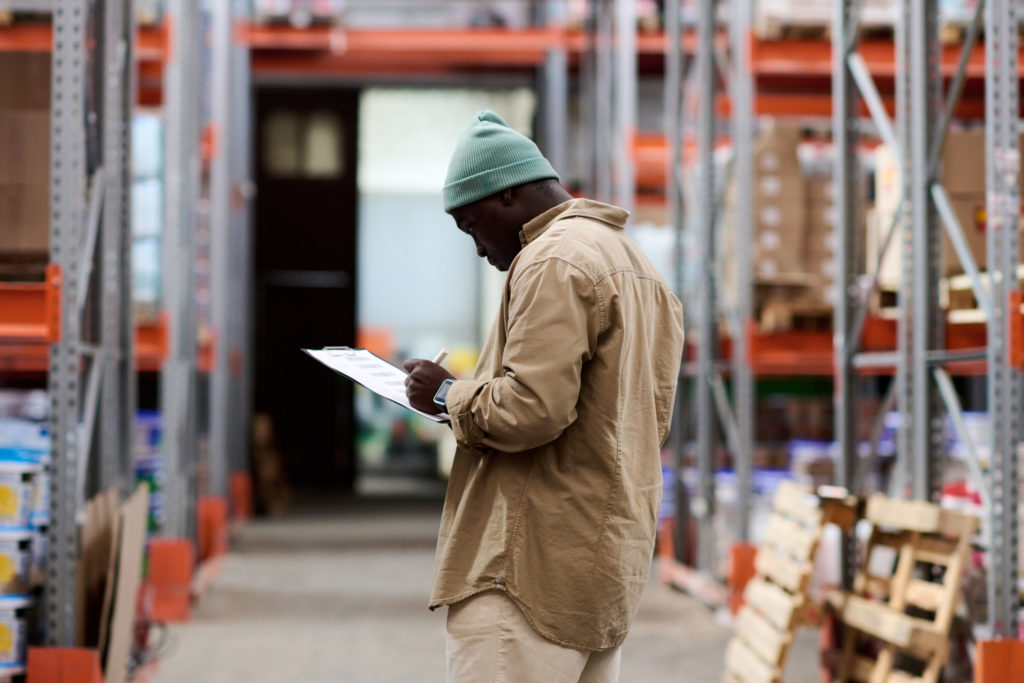New technology in supply chain processes has improved productivity and customer satisfaction and increased distribution into new markets. Updated supply chain technology has greatly affected product availability for customers in new parts of the country and across the globe, increasing sales and reducing shipping and distribution costs.
How Can Technology in Supply Chain Processes Improve Operations?
Improving the technology in supply chain management can reduce costs, response times, and fulfillment times while increasing customer satisfaction and operational efficiency. Internet-capable tracking and data devices, blockchain automation, cloud computing, artificial intelligence, and machine learning are all contributing to higher efficiency and improved operations.
Top Technology in Supply Chain Management
Artificial intelligence, advanced analytics software, tracking through Internet of Things (IoT) devices, and other supply chain technology have made it easier than ever to improve your company’s supply chain processes. But how do the top supply chain products and technologies contribute to improved inventory management, shipping, and customer satisfaction?
1. Internet of Things Devices
Internet of Things (IoT) devices allow devices like cars or phones to communicate with other devices via the internet. New IoT devices include sensors, RFID chips, Bluetooth-connected devices, and other cloud-enabled tools. These can connect to inventory management systems, environmental sensors, and location tracking software to help your warehouse logistics team ensure proper handling of products and timely delivery to stores or customer homes.
2. Blockchain Automation
The blockchain is a new term that most people associate with NFTs and cryptocurrencies, but it is much more than that. This effective data management tool based on a decentralized ledger encrypts all information and lets you track data input chronologically. These secure protocols protect data from external intrusion while allowing members with access to the ledger to see orders, payments, inventory tracking, and other automated processes.
Using blockchain technology, you can also implement smart contract processes when you fulfill certain contract obligations. For instance, if a buyer submits payment for five units of a product, the blockchain can authorize fulfillment of the order automatically, sending transfer approval to the correct warehouse or distribution center to pack and ship five units.
3. Advanced Analytics Softwares
Supply chain software includes technologies that use machine learning and artificial intelligence. Computers can perform advanced analytics using these technologies to track purchasing patterns, monitor environmental conditions in multiple warehouses, and predict future trends.
These softwares can compile thousands or even millions of data points to determine profitability and losses, track fulfillment and customer satisfaction, and predict upcoming demand.
You can use this information to make decisions about future production runs and quantities, as well as determine whether to change supply chain processes, such as purchasing materials from another supplier or choosing a different storage supplier with better climate control.
4. Robotic Process Automation
Every industry, from automotive manufacturing to fast food processing, uses robotic process automation in several steps of production, storage, and transport. Autonomous robots in the supply chain include warehouse transport arms, last-mile delivery drones, and manufacturing robots.
5. Autonomous Vehicles for Transport
Self-driving vehicles aren’t just the future of commuter traffic and transportation. Autonomous vehicles are also key in transporting materials and finished products through the supply chain. Trains, trucks, drones, and other transport vehicles are beginning to use automation to travel dedicated routes, and in the next decade could become one of the most common ways to transport products and materials.
6. Artificial Intelligence
Artificial intelligence (AI) is a series of algorithms that can accept and interpret data inputs and process the information similarly to human intelligence. Over time, AI can grow to make more advanced decisions more quickly, just like a human. Using AI and machine learning to train the AI can help manufacturers and inventory managers determine how to manage certain supply chain processes.
7. Cloud Computing
Keeping data in the cloud protects data with secure encryption while allowing supply chain managers to centralize information.
Combining cloud computing with AI, machine learning, and blockchain automation can help manufacturers, inventory managers, and other key players throughout the supply chain to streamline their processes and communicate effectively between different production and distribution hubs and spokes.
8. 3D Printing in Manufacturing
A recent trend in manufacturing has been implementing industrial 3D printing to produce both low-volume and high-volume production runs. 3D printing allows manufacturers to offer customization and on-demand production when customers place an order. It also allows manufacturers to produce new shapes and structures quickly and efficiently for large batch production runs.
Industries across the globe use 3D printing technology to reduce waste, decrease manufacturing costs, improve customer satisfaction, and produce more interesting and functional product designs. Aerospace technology, security, alternative energy, and medical equipment engineering firms are all turning to 3D print manufacturing.
9. Machine Learning for Forecasting
Being able to predict customer buying patterns, upcoming product or material shortages, and operational bottlenecks helps manufacturers and other supply chain players adjust their processes in time to take advantage of upcoming demand or avoid obstacles in production and distribution.
Using AI and machine learning effectively can keep your company one step ahead of your competitors.
10. Sustainability at Every Level of the Supply Chain
Consumers are becoming more aware of the damage that many commercial processes do to the environment, making green initiatives and sustainability important factors in managing your company’s supply chain. From sourcing materials for your products to using electric vehicles for deliveries, you need to improve your supply chain technologies to reduce your company’s carbon footprint.
Learn More About Supply Chain Technology Trends with Encore Deliveries
Supply chain technology is helping manufacturers and distributors streamline their processes, operations, and costs. At Encore Deliveries, we provide a range of supply chain services, including warehousing and logistics, home delivery, last-mile delivery, and small parcel delivery. Visit our blog to learn more about the latest news in supply chain technologies and trends.
To learn what Encore Deliveries can do for your shipping and supply chain management across Canada, call us at (905) 670-7111 or contact us online today.



 Who We Are
Who We Are
 Our Advantages
Our Advantages
 Case Study
Case Study





